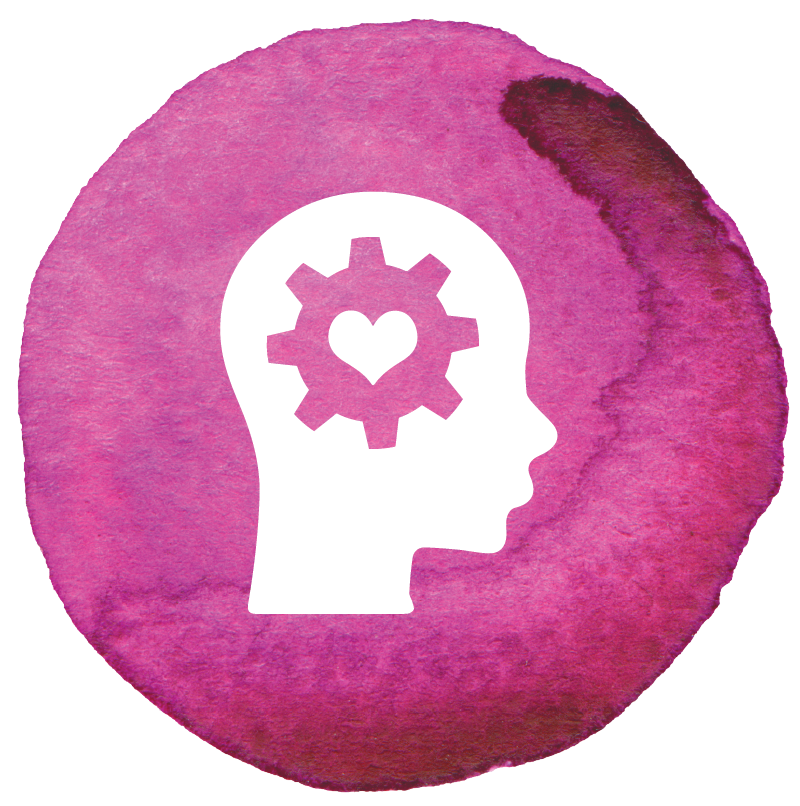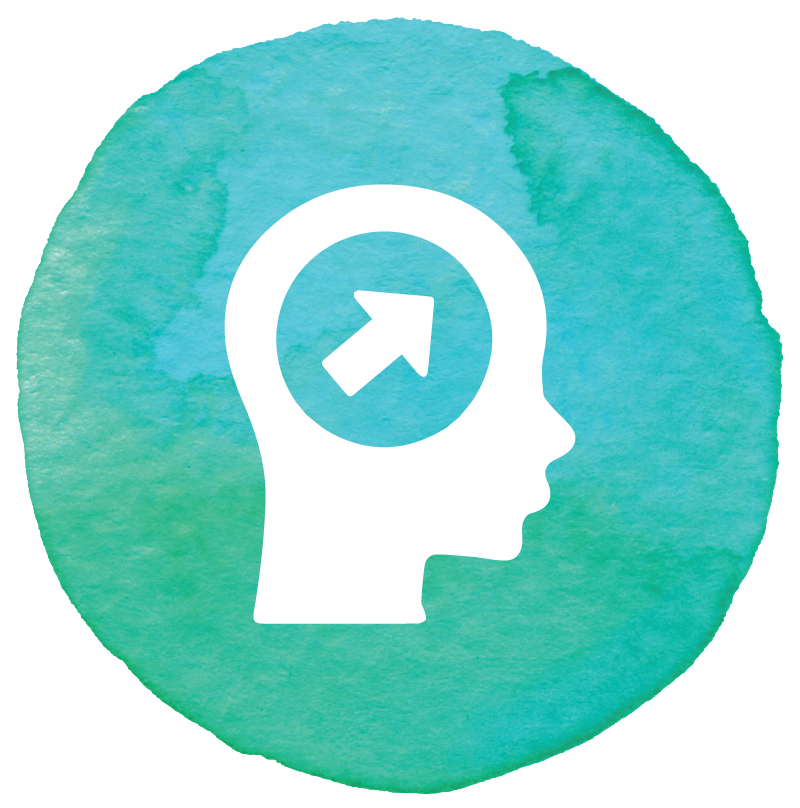
What is EQ?
Emotional intelligence – or emotional quotient (EQ) – is defined as an individual’s ability to identify, evaluate, control and express emotions. Emotional intelligence allows one to manage their feelings so they can express them appropriately and effectively, enabling people to work together toward their common goals.
People with high EQ usually make great leaders and team players because of their ability to understand, empathize and connect with the people around them, increasing their emotional wellness. Decades of research shows that children who develop these skills early make healthier decisions and have a greater chance of leading successful lives.
The 5 Competencies of EQ
The activities and tools provided in the ParentingEQ subscription box will build skills in the following areas.
Self-Awareness
Self-awareness is the ability to identify your emotions and how they impact your thoughts and behaviors. You are able to see emotions that are complex and change over time. When you are self-aware, you recognize that your feelings play a role in your decisions.
Self-Regulation
Self-regulation allows one to control their emotions. When you self-regulate, you take a pause and refrain from acting impulsively. Your emotional response is appropriate to the situation at hand, and you are able to make sound decisions and act in good judgement.
Motivation
Motivation is our drive to set goals and act on opportunities that come our way. When we are self-motivated, we stay committed even when things get challenging. We remain optimistic, and take initiative to make improvements to our lives.
Empathy
Empathy is being aware of the feelings of others. When you have empathy, you can put yourself in someone else’s shoes and see situations from multiple points of view. You acknowledge their emotions and thoughts.
Social Skills
Social skills are critical to interpersonal relationships. These skills allow us to communicate our feelings, solve conflicts, and collaborate with individuals and groups. They help us bond and build trust with others.
Intelligence quotient, or IQ, measures your reasoning and problem-solving abilities.
Emotional intelligence, or EQ, is the capacity for recognizing our own feelings and those of others, for motivating ourselves, and for managing our own emotions in ourselves and in our relationships. High emotional intelligence builds overall emotional wellness.
Research shows that 71% of employers value what emotional intelligence is over IQ and 75% say they will promote a high EQ candidate over a high IQ candidate. Emotional wellness is an important factor in living a successful and meaningful life.
Why Is This So Important?
Psychologists such as Daniel Goleman began to raise awareness of EQ in the mid-90s when he released his book Emotional Intelligence. Since that time, studies have continued to show the importance of EQ and an emphasis on emotional wellness. A common finding is that emotional intelligence can predict future success in relationships, health, and quality of life. It’s been shown that children with high EQs earn better grades, stay in school longer and make healthier choices overall. Teachers also report that high-EQ students are more cooperative and make better leaders in the classroom.
The great news is that EQ can be developed, and it starts at home! ParentingEQ is here to provide the resources and tools to successfully build EQ among parents and children, increasing emotional wellness for the whole family.






